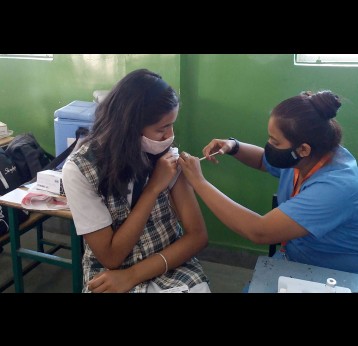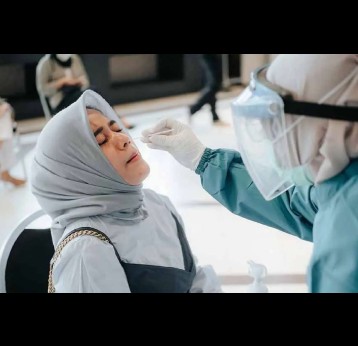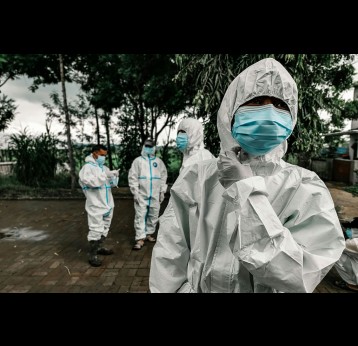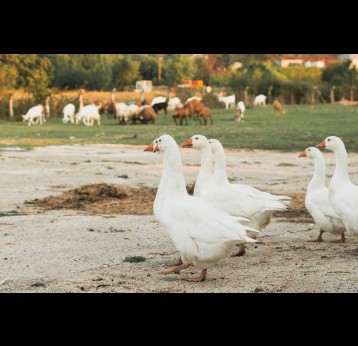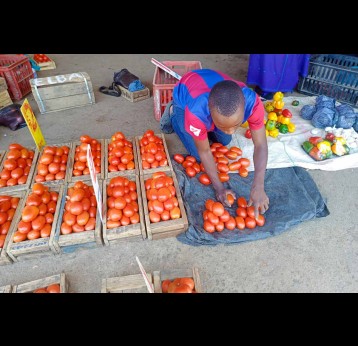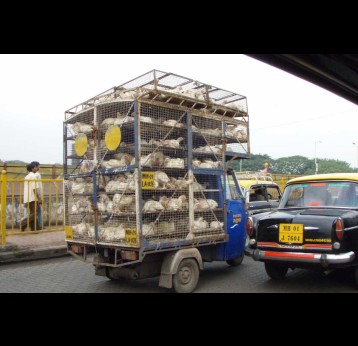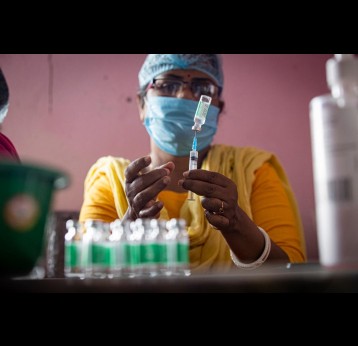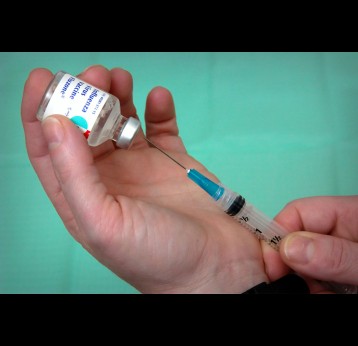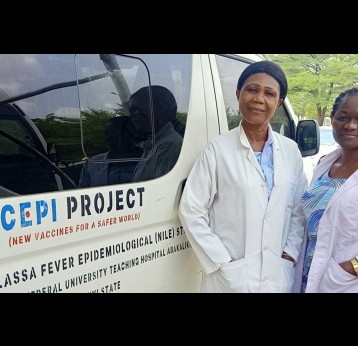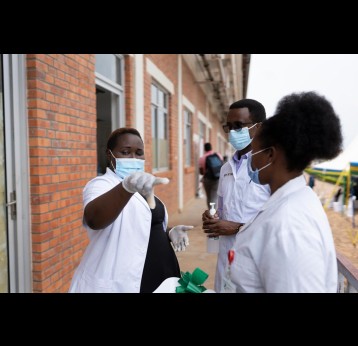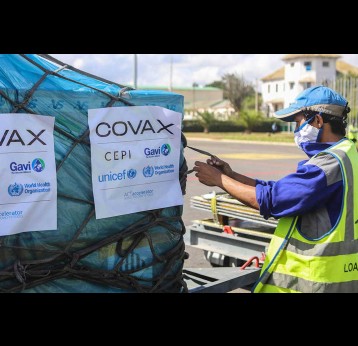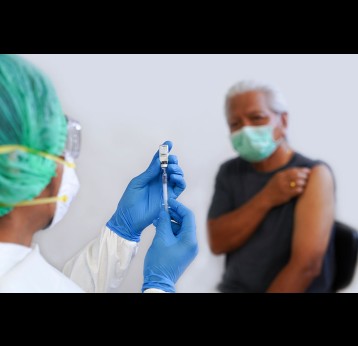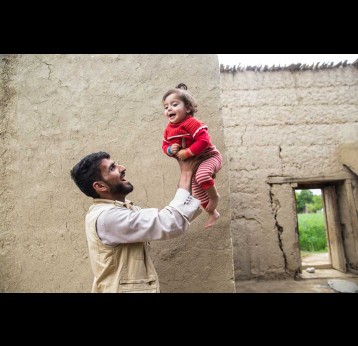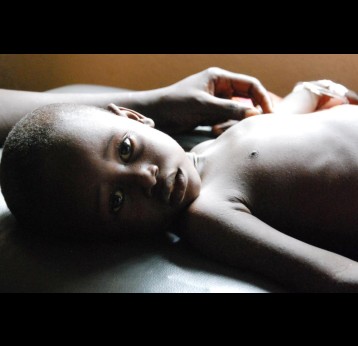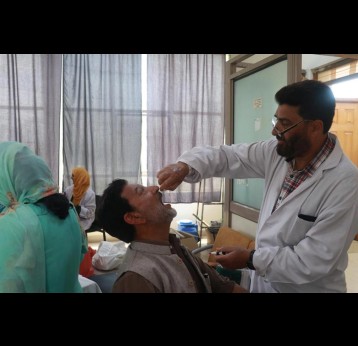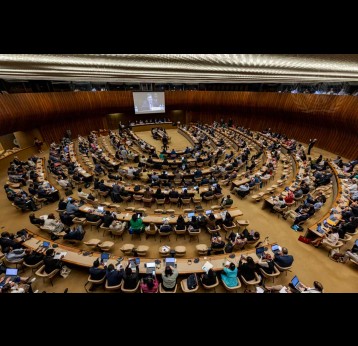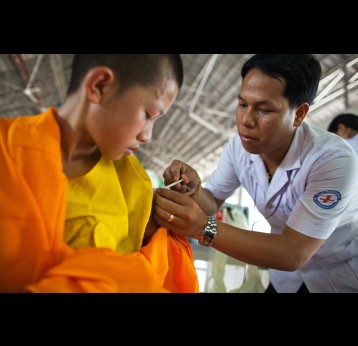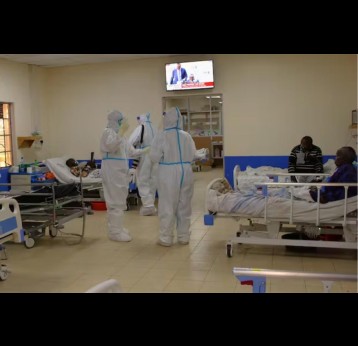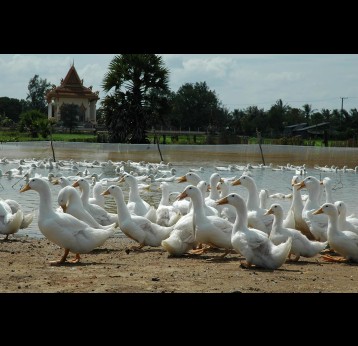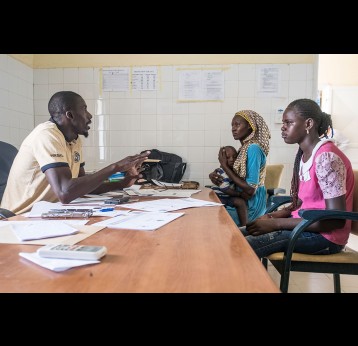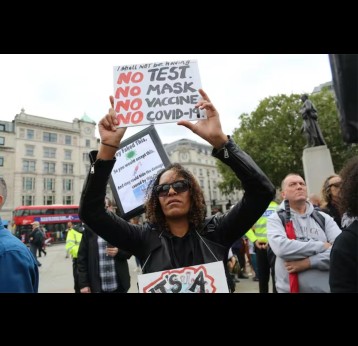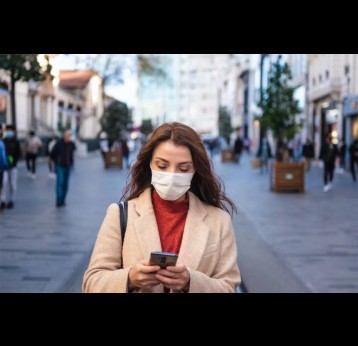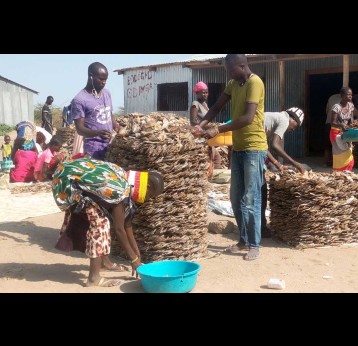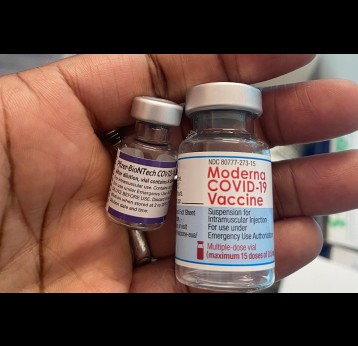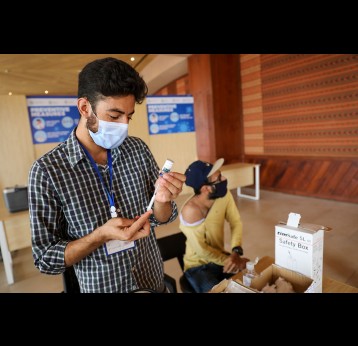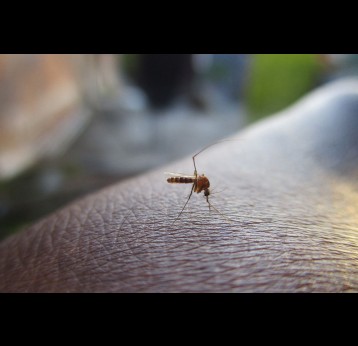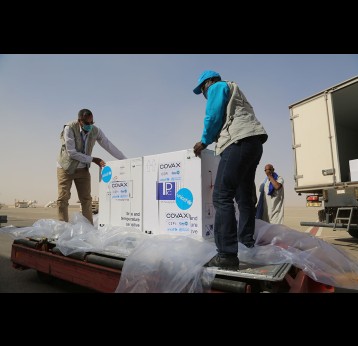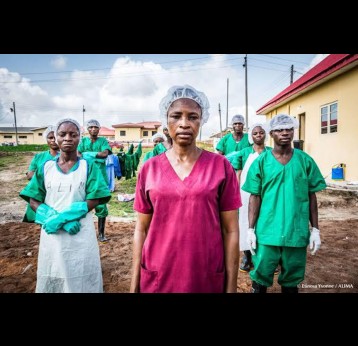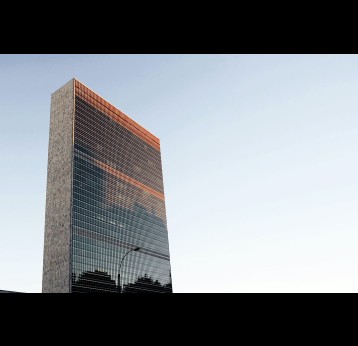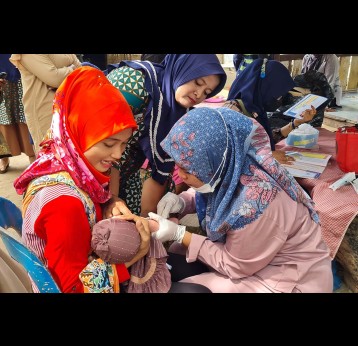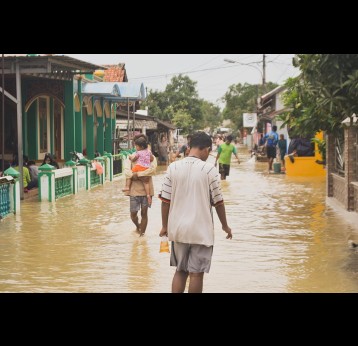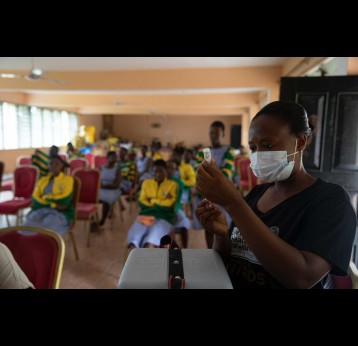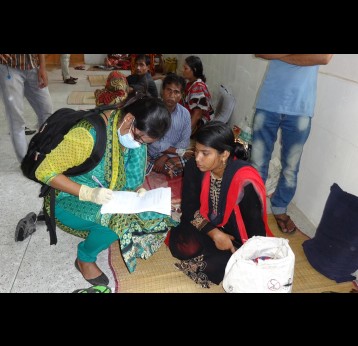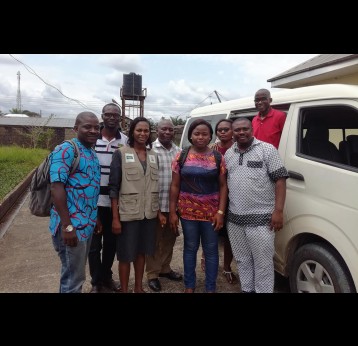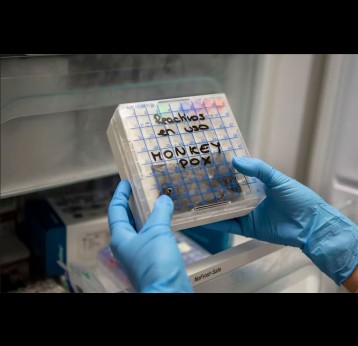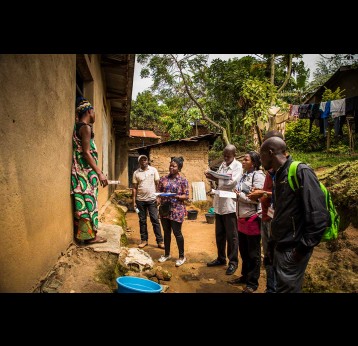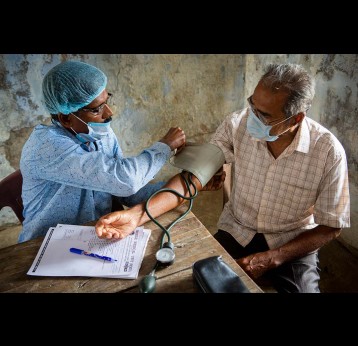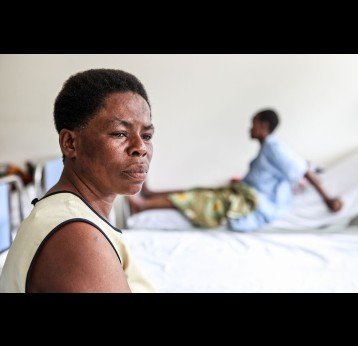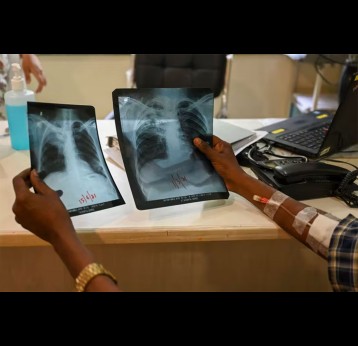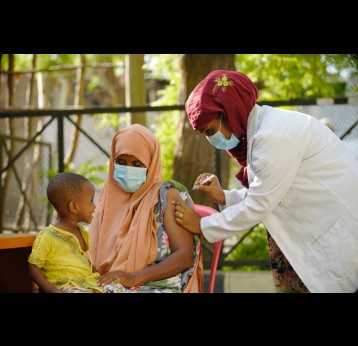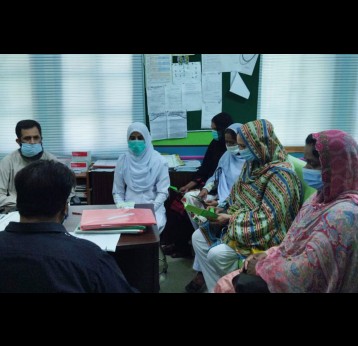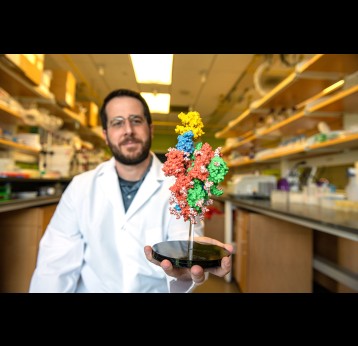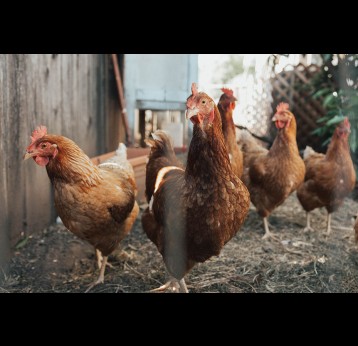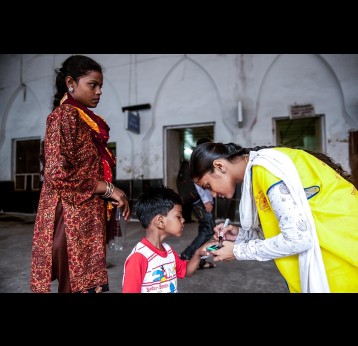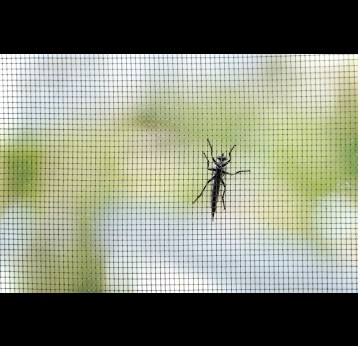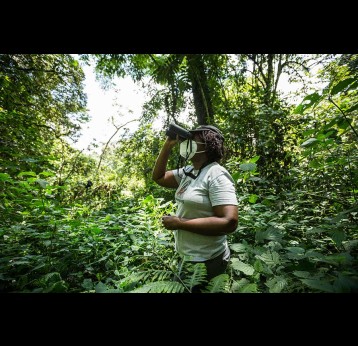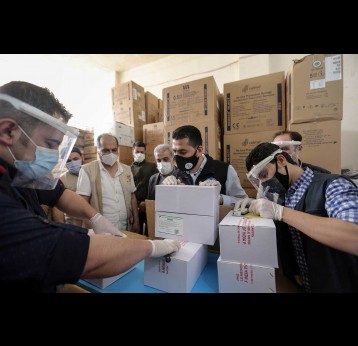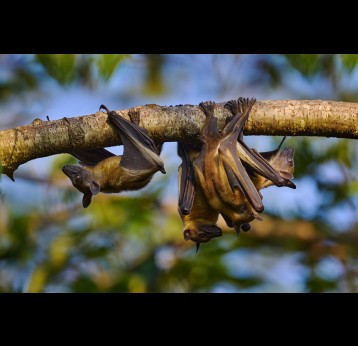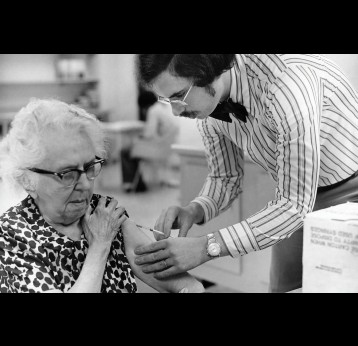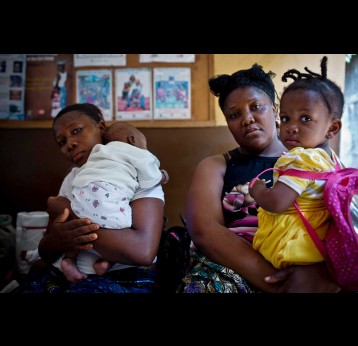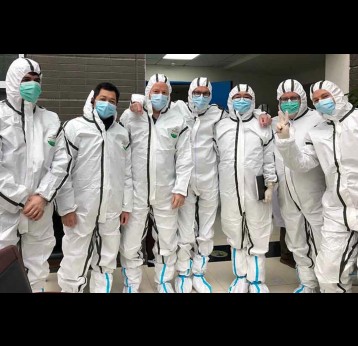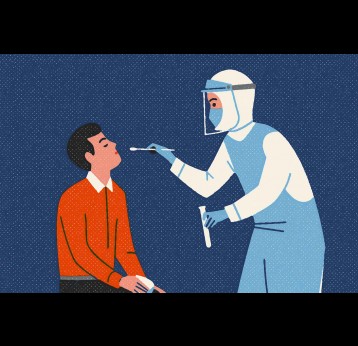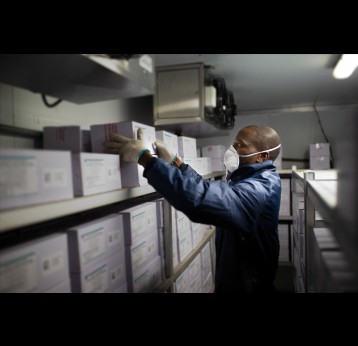Vaccines: central to global health security
Outbreaks of vaccine-preventable diseases are becoming more likely, more frequent and more far-reaching across the globe – driven by factors such as climate change, mass migration, urbanisation and antimicrobial resistance (AMR). In addition to the direct health impact, outbreaks cause numerous disruptions to health service delivery, including routine immunisation programmes. This may jeopardise coverage rates and put individuals and communities at risk of disease beyond the outbreak pathogen itself. The world’s ability to respond to outbreaks is a bellwether of its ability to respond to future pandemics.
Vaccines are a central tool in the global health security toolkit and are critical for the prevention of, and response to, outbreaks, epidemics and pandemics. All but one Public Health Emergency of International Concern (PHEIC) – a formal declaration by the World Health Organization constituting a public health risk through international spread of disease and which may require a coordinated international response – has relied on vaccines as part of the response. The COVID-19 pandemic showed that countries with strong immunisation programmes were better able to implement a vaccine response to the pandemic. Achieving equitable access to vaccines is critical during a pandemic and requires an end-to-end approach centred on the needs of the most vulnerable.
Gavi’s role
Building on its more than two decades of work on disease prevention and outbreak response, its expertise as a co-lead for COVAX and the lessons learned from the COVID-19 response, Gavi is meeting the new challenges to global health security to enhance countries’ capabilities to sustain strong immunisation programmes, and to further Gavi’s mission of saving lives and protecting people’s health by increasing equitable and sustainable use of vaccines. This includes:
- working with Vaccine Alliance and other partners to prepare for and respond to outbreaks, epidemics and pandemics of vaccine-preventable diseases to ensure equity and inclusivity in decision-making for prevention, preparedness and response;
- building on existing mechanisms for outbreak prevention, preparedness, and response – such as vaccine stockpiles for Ebola and cholera, and diagnostics for yellow fever – and long-term health system and immunisation strengthening (HSIS) investments;
- working with Gavi implementing country partners to support resilient routine immunisation programmes that can quickly pivot to outbreak response; and
- leveraging innovative finance tools; and ensuring early and at-risk funding for critical response activities from day zero of a future pandemic through the First Response Fund and the Day Zero Financing Facility for Pandemics (DZF).
Priority areas
Several global efforts are underway to strengthen and shape the global health architecture, with the goal of better addressing countries’ needs in preparing for and responding to outbreaks, epidemics and pandemics – as well as coordinating roles and responsibilities to enable a more timely response. Gavi is contributing to these efforts, focusing on areas where the Alliance has a clear comparative advantage and alignment with existing programmatic priorities. These efforts include:
- negotiations of a Pandemic Accord through the Intergovernmental Negotiating Body (INB) on pandemic prevention, preparedness and response;
- amendments to the International Health Regulations (2005) under the framework of strengthening health emergency preparedness, response and resilience (HEPR);
- engagement with national, regional, and civil society partners to support the United Nations General Assembly’s September 2023 adoption of the first Political Declaration on Pandemic Prevention, Preparedness and Response (PPPR); and
- actively working alongside key vaccine partners to contribute to the processes initiated by the G7, G20, and the WHO to shape the future architecture of global health, including establishing an interim coordination mechanism on medical countermeasures (e.g. vaccines, therapeutics, devices, diagnostics).
Related resources
- More than US$ 1.8 billion in support for African vaccine manufacturing, catching up missed children and pandemic preparedness approved as Gavi Board steps up efforts to tackle backsliding and fight health emergencies
- COVAX: key learnings for future pandemic preparedness and response
- A preliminary assessment of COVAX’s impact in lower-income countries
- COVAX Facility and COVAX Advance Market Commitment (AMC) Formative Review and Baseline Study
- From biodefence to the DRC: How the Ebola vaccine became one of the fastest vaccines to license in history
- Building an emergency response decision-making framework for outbreaks of pandemic potential
- Gavi facts and figures
- Principles of mpox dose donation
Latest articles about global health security
View allQ&A: ‘India must ready tools to prevent virus outbreaks’
From rotaviruses to flu, vaccines are key to protecting the vulnerable and preventing future pandemics, says India’s Gagandeep Kang.
This Indian bus is actually a high-security mobile laboratory
From the plains of Uttar Pradesh to cloud-skimming Himalayan villages, RAMBAAN, a Biosafety Level 3 lab on wheels, is chasing down the next big, bad bug.
Pandemic threat isn’t just the virus — it’s inequality
Science can stop outbreaks, but equity is needed to prevent pandemics, writes political scientist Matthew M. Kavanagh.
The bat paradox: what nature’s night flyers could teach us about pandemics – and ourselves
Bats carry many deadly viruses, yet rarely fall ill themselves. Rather than fearing them, scientists say we should study and protect them, to safeguard our own health.
Preventing the next pandemic: One Health researcher calls for urgent action
The pace of investment to manage diseases transmissible from animals to humans is dangerously slow.
Prepare for a bird flu pandemic now, virologists urge
Leading virologists from 40 countries warn of critical gaps in pandemic preparedness and outline a plan for readying the world.
5 years after the pandemic began, informal sector workers in Zimbabwe keep a wary eye on the future
Should pandemic preparedness begin at home? For vegetable merchant Cosmas Dambaza, the answer is a reluctant, practical, yes.
We should care more about emerging infectious diseases, and the tools we need to fight them
Pathogens are constantly evolving to become resistant to treatment in the perpetual battle between humans and infectious diseases.
The Elusive Goal of Nationwide Disease Prediction
The CDC is piloting a disease forecasting service called Insight Net. Could it be a game-changer for public health?
From smallpox to mpox: the surprise cost of eradicating a virus
The demise of smallpox and rise of mpox are inextricably linked, highlighting the importance of surveillance after eradication.
Mpox outbreak: one more reason we need a strong pandemic agreement
The recent re-emergence of mpox and its declaration as a Public Health Emergency of International Concern by the World Health Organization should serve as a wake-up call for all global health leaders.
How nanotechnology could make vaccines stronger, for longer
Nanoparticles are revolutionising vaccines, and a new combination of vaccine add-ons could keep us safer from infectious threats.
Sitting ducks: how likely is a bird flu pandemic in India?
Lakshmi Gopinathan spoke to Indian scientists to understand what we know, and what we can’t know yet, about the potential for a new spillover threat.
Meet the Indonesian epidemiologist championing homegrown evidence to counter cross-border threats
Dr Henry Surendra, now on the hunt for the next pandemic bug, tells VaccinesWork how COVID-19 shaped his research interests.
Preparing for the unknown: how the world can get ready for the next pandemic
South African infectious diseases expert Professor Salim Abdool Karim explains how the world can prepare for the next pandemic – even if we don’t yet know what it will be.
How day zero financing could help protect the world during the next pandemic
Gavi’s First Response Fund aims to secure immediate access to vaccines and to protect routine immunisation programmes during major public health emergencies.
How to vaccinate the world during the next flu pandemic
More work is needed to ensure everyone can access pandemic flu vaccines when we need them, say Nicole Lurie and Freya Hopper at the Coalition for Epidemic Preparedness Innovations (CEPI).
How climate change increases pandemic risk
Climate change and more contact between wild animals and humans increases the risk of diseases such as Lassa fever, Rift Valley Fever and Nipah.
Lessons from Rwanda: Building systems to protect against infectious diseases and biothreats
Building resilient and sustainable disease intelligence systems is critical post-pandemic. Here we outline the strides Rwanda has made in this regard.
African countries step up the fight against zoonotic disease
Faced with the mounting threat of animal disease spillovers, four African countries are working together to educate human communities on staying safe.
Advances in AI are making it possible to quickly and effectively model potential viral vaccine targets
Pandemic Preparedness Cannot Wait
As multilateral institutions debate how to mitigate future disease outbreaks, we can take practical steps to improve upon the innovative mechanisms, including the COVAX facility, developed during the COVID-19 pandemic. That requires building a…
Why we still need to talk about pandemics and how to approach future ones
Nobody can be blamed for not wanting to hear the word ‘pandemic’ ever again. COVID-19, the worst global health emergency in 100 years, claimed the lives of millions of people.
The Simplest Way to Prevent the Next Pandemic? Leave Bats Alone
Bats harbor many viruses that can spill over to humans. It’s time to leave bats and their habitats undisturbed.
1918 Spanish Flu was associated with higher risks of stillbirths and low birth weights
Study emphasises the need to consider maternal and infant health in pandemic planning.
What We Must Learn from COVID-19
With the pandemic now seemingly in the rearview mirror, policymakers must start preparing for the next public-health crisis. Today’s political leaders have a historic opportunity to foster a more inclusive global order, and they have a…
Three things that need to be included in the new Pandemic Accord
This week negotiations are taking place on a historic Pandemic Accord to deal with future pandemics. Gavi’s Anamaria Bejar and Thiago Luchesi set out three vital points that are currently missing in the draft Accord.
Efforts to tackle diseases ‘should shift to teens’
Diarrhea, pneumonia and malaria account for two thirds of infectious disease and death among children and adolescents.
Q&A: How “vaccine libraries” could arm us against the next pandemic
COVID-19 vaccines were developed in record time because scientists were already working on vaccines against related viruses. Dr Melanie Saville from the Coalition for Epidemic Preparedness Innovations (CEPI) explains how a similar approach could…
Ten years, five epidemics, one country: What Guinea learned from its battle against disease
Guinea has suffered outbreaks of Ebola, measles, Lassa Fever and Marburg, as well as COVID-19, over the past decade. VaccinesWork spoke to Gavi’s Senior Country Manager, Magdi Ibrahim, about how the country is learning from a troubled recent past…
“The Alliance never rests”: A preview of what’s coming at next week’s Gavi Board meeting
The Gavi Board, which brings together stakeholders from across the world of immunisation1, is meeting next week in Geneva. Prof. Jose Manuel Barroso, Chair of the Board, reflects on some of the key elements up for discussion.
Sacred and safe: How the Hajj gets vaccinated
The pandemic’s caps on numbers have lifted, and this year’s Hajj will draw millions. Countries including India are rolling out special vaccination drives to keep pilgrims safe from epidemic diseases.
Prepare for disease deadlier than COVID – WHO chief
COVID-19 threat is not over, World Health Assembly hears, as WHO launches global pathogen surveillance network.
African scientists are working to pool data that decodes diseases – a giant step
Time and information is of the essence when tackling infectious diseases across countries and continents.
Infectious diseases have shaped human history. Here are some of the medical innovations that have helped fight the most destructive ones since the 1920s.
How Universal Health Coverage underpins pandemic prevention, preparedness and response
Routine immunisation is one of the most efficient and cost-effective healthcare interventions with the greatest reach and demonstrated health outcomes – an essential building block of the Universal Health Coverage and pandemic prevention,…
Could the “Arcturus” variant trigger a new wave of COVID-19 infections and deaths?
The XBB1.16 variant may be the most transmissible version of SARS-CoV-2 yet, but experts believe it is unlikely to cause a big wave of cases.
Predicting epidemics isn’t easy. We’ve created a global dataset to help
A new global dataset shows there is no clear global increase of infectious disease outbreaks over time. And it can suggest which countries would most likely be affected by an outbreak.
75 years later: the birth of the World Health Organization
As the WHO reaches its 75th birthday, VaccinesWork looks at how the organisation came to be.
World Health Day: 8 trends shaping global healthcare
From inflation and worker burnout to AI-assisted diagnosis and precision medicine, global healthcare is being shaped by many trends right now.
No ‘human-to-human infection’ of bird flu in Cambodia
Officials confirm that no human-to-human transmission of bird flu has occurred in Cambodia.
Preparing Now for the Next Health Emergencies
While it is tempting to put the COVID-19 pandemic in the rear-view mirror, now is the time to prepare for future public-health crises. Governments should focus on boosting their health systems’ resilience, which includes strengthening prevention…
Rejecting science has a long history – the pandemic showed what happens when you ignore this
You’d be surprised how far back the roots of anti-vaccine arguments stretch.
New roadmap charts a course towards improved coronavirus vaccines that could head off future threats
An international collaboration of scientists has mapped out a strategy to make long-lasting and broadly protective coronavirus vaccines a reality.
COVID-19 is still a global health emergency. What does that mean?
We've just passed the third anniversary of the declaration of the COVID-19 emergency – and WHO says it’s not over yet. Let’s talk about it.
The world needs a COP-like process for pandemic preparedness
Climate change is making another pandemic likely – the question is not if but when? To prepare, the world needs a COP-level process for pandemic preparedness.
COVID in 2023 and beyond – why virus trends are more difficult to predict three years on
One thing is for certain though – the pandemic is not over yet.
Careful what you catch: Lake Turkana’s fishing communities double down on disease prevention
Kenya’s desert lake is the hub of a profitable regional fish trade. Now, public health workers are patrolling the beaches and markets to make sure that the fish traders’ corridors don’t become epidemic highways.
Pandoravirus: the melting Arctic is releasing ancient germs – how worried should we be?
A Pandoravirus has been revived after remaining dormant in the Siberian permafrost for nearly 50,000 years.
Measles: why the World Health Organization has declared it an ‘imminent global threat’
Many children have missed a measles vaccine dose since the start of the COVID pandemic.
Governments urged to invest in healthcare systems despite global economic uncertainty
We need to urgently invest in healthcare systems to build resilience against future crises and the growing burden of disease, finds new research.
Universal flu vaccine could protect against future pandemics
Scientists have used mRNA technology to create a vaccine that can protect against 20 types of influenza.
The World Is Still Failing at Pandemic Preparedness and Response
The G20 and international financial institutions still have not created a pandemic preparedness and response framework capable of managing the next global health crisis. Fortunately, some low- and middle-income countries are pioneering new models…
For four decades after World War II, climate change and job-displacing artificial intelligence were not on anyone’s mind, and terms like "deglobalization" and "trade war" had no purchase. But now we are entering a new era that will more closely…
5 things to know about COVAX in September 2022
September saw good progress in history’s largest vaccine rollout, with COVID-19 vaccine coverage continuing to increase in lower-income countries and civil society finding its voice. Managing Director of the COVAX Facility, Dr Derrick Sim, gives…
Rift Valley fever: What’s next for the climate-driven disease with epidemic potential?
CEPI Vaccine R&D Project Leader, Mike Whelan, discusses the characteristics of the disease and CEPI's new call with the European Union to advance Rift Valley fever vaccines.
Monkeypox cases waning, but global threat remains
The global outbreak is winding down, but scientists say this is the time to use vaccines and antivirals to control the virus before it mutates into a bigger threat.
If governments fail to take action, the cost of living crisis will worsen the impact of the pandemic this winter, and vice versa.
Zika hasn’t disappeared – here’s why it should stay on our radar
Although Zika raced around the world in 2016, leading to babies born with developmental problems, research was slow to explain how the virus worked – until now.
Preparing for the Next Global Catastrophe
The end of the pandemic may be in sight, but COVID-19 could be a harbinger of future calamities. If global leaders do not establish equitable mechanisms to respond before the next big crisis strikes, low-income countries and high-risk groups will…
Courage and duty in Nigeria’s Lassa fever outbreak
In spite of the risk of infection, medical workers in Ondo State are putting their lives on the line to save those suffering from deadly Lassa fever.
UNGA: getting back on track to the global goals
As world leaders gather in New York for the 77th United Nations General Assembly, why should we focus to re-commit to vaccine equity, routine immunisation and pandemic preparedness that learns from COVID-19?
Why health budgets must not be cut amidst political and economic turmoil
We must protect health budgets to safeguard our populations and ensure that our health systems are resilient to inevitable future challenges. Healthier populations are happier, more productive and take an active role in the workforce. We must…
Islamic organisations promote COVID-19 vaccinations in Indonesia
To tackle the COVID-19 pandemic, Islamic organisations are not only promoting vaccinations but also administering them.
Researchers estimate we currently face a 2% chance of a COVID-19-like pandemic in any given year. Climate change is increasing this risk.
‘Tomato flu’ outbreak in India – here’s what it really is
Swabs from two children in the UK reveal the cause of the ‘mysterious illness’.
Five things you need to know about Langya virus
A new virus has been discovered in China that is related to Nipah virus – here’s what we know so far.
How can we boost COVID-19 vaccine coverage in lower-income countries?
COVID-19 vaccine coverage in low- and middle-income countries is increasing at a steady pace, but remains lower than higher-income nations. VaccinesWork spoke to Ted Chaiban, Head of the COVID-19 Vaccine Delivery Partnership, about how…
How the COVID-19 pandemic has affected healthcare around the world
New insights into the disruption caused by COVID-19 could help strengthen health systems ahead of future pandemics.
Scientists urge close monitoring of cholera variants
New cholera variants capable of causing large outbreaks could emerge. Constant monitoring is the only way to prevent possible pandemics. World has seen seven pandemics of the infectious disease.
Why smallpox vaccines weren’t produced in Britain’s African colonies
Hint: It’s not because it wasn’t possible.
How African scientific sleuths spotted the signs that monkeypox could become a global problem
Figuring out whether the virus has evolved to be transmitted more easily will be key to controlling it.
What are zoonotic diseases - and how dangerous are they?
Zoonotic diseases – such as COVID-19 and Ebola – spread from animals to people. And a rapidly growing global population is heightening the risk to humans, say experts.
What’s in a name? Why giving monkeypox a new one is a good idea
The new name for monkeypox must be aligned with best practices in naming of infectious diseases to avoid the uninformed negative narrative that associates diseases with regions.
Various countries are experiencing an uptick in COVID-19 cases driven by the highly transmissible BA.4 and BA.5 Omicron sub-variants, so what should we expect in the coming weeks?
Q&A: How the Black Death’s origins were cracked
A team of researchers made headlines this month with a paper that detailed a major breakthrough in the mystery of the origin of the Black Death. Here, archaeogeneticist Dr Maria Spyrou, co-lead author of that study, speaks to VaccinesWork about…
Africa ‘must step up surveillance’ to curb monkeypox
Almost 60 cases of monkeypox have been confirmed in Sub-Saharan Africa. Public awareness about transmission must be improved, say experts. Focus needed on surveillance, prevention and control measures.
Monkeypox: ‘This is an entirely new spread of the disease’
This is not the first time that the monkeypox virus has spread beyond Africa, its continent of origin. But the current epidemic is unprecedented for a number of reasons.
We can make impact bonds work harder and better to create healthcare gains for poor communities
Financing health care is not just a question of how much, but also of how. Impact bonds have done a lot to facilitate transformative change already – and…
We Can End Neglected Tropical Diseases
Diseases like leprosy, river blindness, and trachoma are rare in much of the world, but they remain rampant in many of the poorest countries, even though they are largely preventable. A new initiative aims to raise awareness about diseases that…
HIV control approaches may not work for TB: lessons from South Africa and Zambia
We expected to find that screening everybody for TB would identify individuals not yet diagnosed, and treating them quickly would reduce the prevalence of TB in the community.
How to improve primary healthcare to prepare for future pandemics
These are some of the pivotal areas we need to invest in to build better health systems.
Trendspotting: why pandemic preparedness needs to include big data
Professor Marion Koopmans has been instrumental in investigating the animal origins of everything from bird flu to COVID-19. She is now looking at how we can prevent the next pandemic.
What is behind the sudden international spread of mpox?
The virus may be exploiting a change in population behaviour and increased global travel but it can still be stopped from spreading further, say scientists.
The pandemic is far from over: how can the private sector help us fight it?
We are still in the acute phase of the pandemic, with cases continuing to rise in many countries and vaccination rates stagnating. The private sector could play a key role in finally bringing COVID-19 under control.
Pakistan’s drive to end tuberculosis
TB, the single biggest killer among the world’s infectious diseases, is a major concern in Pakistan. But a concerted government strategy to find and treat hidden patients all over the country is paying off.
Five things you need to know about anthrax
Governments have been preparing for an anthrax attack of bioterrorism as it’s the most likely pathogen to be used – so how has a bacterium that is normally found buried deep in the soil become such a deadly threat?
Five things you need to know about mpox
The UK has seen unusual cases of mpox, which is normally spread by infected wild animals in Africa. So what is this disease, how does it spread and can it be treated?
Lumpy skin disease is spreading fast in Pakistan
Five million dairy farmers and meat sellers are being hit hard by a Lumpy Skin Disease outbreak affecting their cattle.
Taming the spike: How Jason McLellan helped turn the tide of the pandemic
The microscopic spikes on the SARS-CoV-2 virus are fundamental to its ability to infect us. Locking these shapeshifters in place would prove fundamental to developing vaccines against it.
Breathing New Life into Medical Oxygen
In low- and middle-income countries, the COVID-19 pandemic exposed a long-neglected problem that was already contributing to untold preventable deaths every year. Now, a global mobilization to scale up the supply of medical oxygen must be…
Bird flu: How worried should we be?
Reports of a human infection with H3N8 bird flu in China and now the US1 are reminders that avian influenza remains an ongoing threat. We spoke to Professor Ian Barr and Dr Michelle Wille about the current level of risk it poses, and…
India draws lessons from polio eradication initiative
The programme to eradicate polio shows that mass immunisation is possible in India.
Europe at risk of measles resurgence as COVID-19 restrictions are eased
With many countries failing to hit measles vaccine coverage targets, and COVID-19 control measures being lifted, the goal of measles elimination hangs in the balance.
New bednets have potential to save “millions of lives”
A new class of insecticide-treated bed net significantly reduces malaria infections in children, by grounding mosquitoes’ flight and preventing them from biting new hosts.
Protecting health on both sides of the zoonotic frontier: Dr Gladys Kalema-Zikusoka
Ugandan wildlife vet Gladys Kalema-Zikusoka knows that pathogenic threats move both ways across the human-animal boundary – and that the best way to protect both animals and people is to bring public health and conservation together.
Did the COVID lockdowns work? Here’s what we know two years on
Research shows that lockdowns helped control cases in general – but that not all control measures had the same effect.
The sewage sleuths turning Bangalore’s wastewater into epidemiological treasure
Wastewater surveillance is increasingly used to track COVID-19 infections and the spread of new variants. Linda Geddes speaks to Dr Angela Chaudhuri about the Bangalore-based initiative she helped establish, which she hopes could provide a…
Testing sewage has helped track COVID – soon it could reveal much more about the UK’s health
An unexpected legacy of COVID could be a new system for monitoring public health.
How to gauge a plague: new analysis sheds light on the meaning of a 6th century pandemic
Disease outbreaks have shaped the world. But how much? New thinking on an early medieval pandemic takes on “plague sceptics” to show that we likely underestimated the impact of the first cross-continental assault of bubonic plague.
The Future of Global Pandemic Security: Navigating shifting landscapes – a Gavi White Paper
The COVID-19 pandemic has demonstrated how ill-prepared health systems and societies are in the face of pandemic shocks and their protracted impact. Now, as global attention begins to shift towards improving the way we prevent and respond to…
The Test of Pandemic Preparedness
The COVID-19 pandemic is the product of a globalized, interconnected world. Without new mechanisms that offer truly global approaches to crisis management and prevention, the experience of the past 18 months is likely to be repeated, with…
Why India’s latest Nipah case means pandemic preparedness is more vital than ever
With COVID-19 still ongoing, viruses like Nipah are nipping at its heels as the potential next pandemic threat.
Plagues and classical history – what the humanities will tell us about COVID in years to come
We all need to know about the science of COVID as we battle through pandemic, but the ultimate story will lie in how it changed our society.
Fighting the flu: 100 years of preparing for pandemics
Although the world’s eyes are currently focused on COVID-19, a network of laboratories has been tracking the emergence and spread of a different virus for seven decades.
The Next Pandemic: Another coronavirus?
Even before SARS-CoV-2 swept around the world, scientists had been warning of the global threat posed by viruses like it. Although COVID-19 vaccines should help to end the current coronavirus pandemic, it is unlikely to be the last.
Why routine immunisation is vital for pandemic preparedness
Trying to control a pandemic can feel like being in a warzone, yet even as we fight COVID-19 we still need to keep one eye on the future and potential emerging pandemics. Dr Velislava Petrova, senior manager in vaccine policy and investment at…
We must better protect wildlife to prevent future pandemics
Wuhan investigation points to wildlife as likely source of COVID-19. Climate change and illegal trade are increasing risk of zoonotic disease transmission. Wildlife protection, surveillance of zoonosis are key to early detection of ‘spillover…
Tackling pandemic threats proactively
If we are to minimize the impact of future disease outbreaks, we must recognize the importance of immunization and invest in preemptive vaccine development, writes Tim Keys.
Here’s how we could stop antimicrobial resistance becoming the next pandemic
Antimicrobial resistance was already a major global health threat, but now the potential increase in the use of antibiotics in response to the pandemic could exacerbate the problem and threaten a potentially even bigger global crisis.
As long as humans encroach on nature, pandemics are inevitable — making it important to concentrate resources in areas where people and wildlife are linked.
Although antimicrobial resistance has been a known and growing problem for decades, only one new class of antibiotics has been discovered since 1984. Tackling AMR requires a fundamental change in how new antibiotics are valued, and government…
More than one million people have died of COVID-19
The true number could be much higher, and two million could die before we get a vaccine, says the World Health Organization.
How has our urban world made pandemics more likely?
As more people have moved to cities, population density, human encroachment and increased global interconnectivity have contributed to the spread of infectious diseases.
The future with COVID-19: three potential scenarios
What our lives will look in the short to medium term future is uncertain, but what does seem clear is we won’t return to a pre-COVID-19 life any time soon. Here are three potential scenarios that infectious disease experts have sketched out for…
10 infectious diseases that could be the next pandemic
Because of vaccination, many deadly diseases are now preventable. But we still lack vaccines for other potentially lethal diseases that could spread to become pandemics like COVID-19. Here is a list of 10 diseases to watch.
What is an emergency vaccine stockpile and how can they prevent pandemics?
We don’t yet know how the COVID-19 pandemic will progress and how long it will take for a vaccine to be developed, but the knowledge and experience gained from past outbreaks can be applied to the global response to coronavirus.


